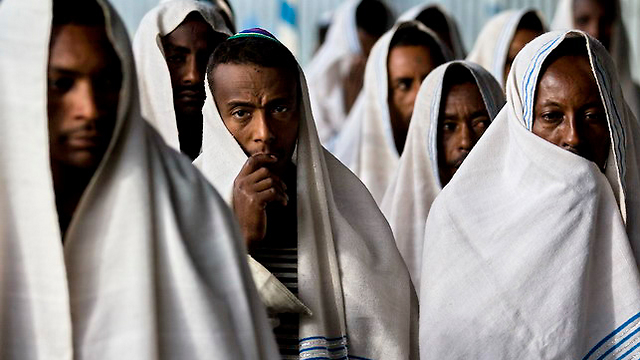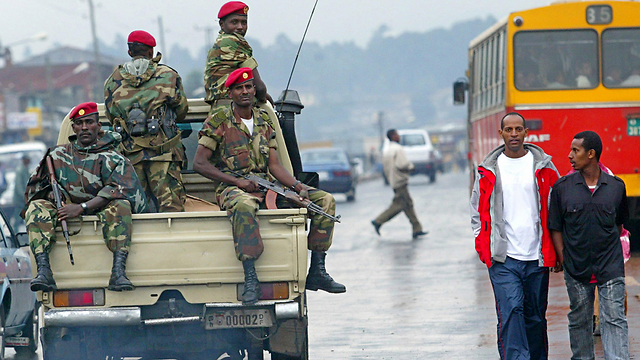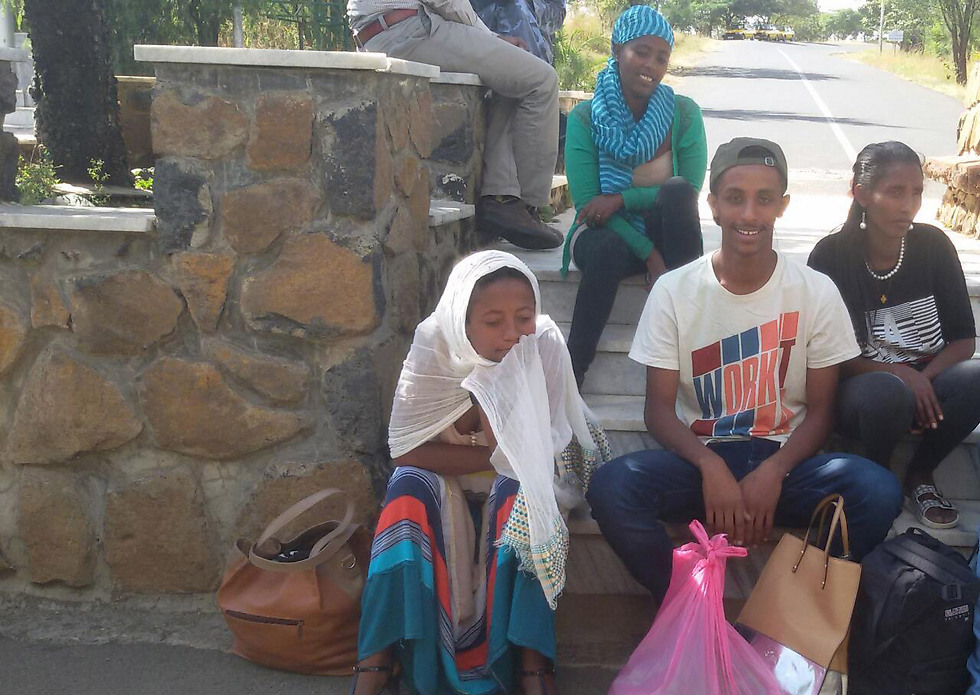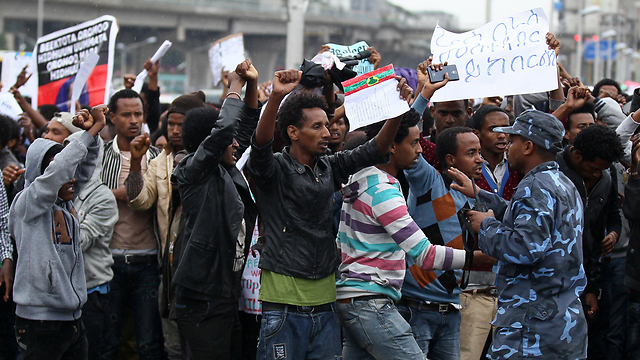Due to the worsening security situation in Ethiopia, the approximately 9,000 Falash Mura in transit camps there are waiting for the Israeli government to implement its decision to bring them to Israel; activists in Israel warn of impending disaster for those waiting to rejoin their families in Israel.
Israeli activists campaigning to bring the Falash Mura (Ethiopians who claim Jewish lineage) from Ethiopia to Israel have been receiving recently reports about the severe distress facing those who remain in transit camps in Gondar following escalating conflicts in the region.
Falash Mura have spoken of their fear for their well-being and the serious difficulty in acquiring food and even in leaving their homes. According to various reports, some of them were injured in clashes, and ten Israeli volunteers have been evacuated from the camp because of the danger.
In recent days, Ethiopian security forces have shot dead some 100 persons. The forces have been attempting to suppress anti-government demonstrations in the Oromiya and Amhara regions. The riots in Ethiopia have caused the Ministry of Foreign Affairs in Jerusalem over the weekend to publish a travel warning for these areas.

Because of the security situation, there is great fear amongst Ethiopian emigrants living in Israel that their family who remain in the Gondar region—and whose immigration Israel refuses to permit.
The chairman of “The Fight to Bring the Jews of Ethiopia,” Yitzhak Mola, sent on Tuesday a letter to Prime Minister Benjamin Netnayahu in which he wrote, “We once again demand that you hasten the government’s decision without further delays and bring the Jews of Gondar and Addis Ababa urgently, before disaster strikes.”

In the letter, titled “The Jewish community in Ethiopia is in mortal danger,” Mola wrote that the campaign that he heads receives “inquiries from families in Israel worried about the danger to the lives of members of their families, members of the Jewish communities in Ethiopia, due to the worsening security situation in the country.”
One of those sending inquiries is Surfal Almo, 22, a discharged soldier from the Paratroopers whose four half-siblings remain in a camp in Gondar. They’ve been refused immigration to Israel for the past decade. “We’re very afraid and worried,” said Almo. “About half a year ago, one of my sibling died there from disease, and we don’t want to lose another sibling because of the chaos in the country. They live in fear, afraid to leave the house. They have problems buying food. They’re under a kind of siege. There have been exchanges of gunfire and confrontations not far from where they live.”

Almo, who immigrated to Israel in 2006, claims, “The state needs to do everything to bring them here.” He is furious about the treatment that he claims that members of the community receive: “There was a terrorist attack in Paris, and the authorities gave a press conference and called on the Jews to come. Now, there’s a situation of immediate and real moral peril in Ethiopia, and none of the politicians care.”
Almo and Mola are both critical of the government’s delay in deciding to bring some 9,000 of the Falash Mura waiting in camps in Gondar and Addis Ababa to Israel. Most of those waiting have relatives who have already immigrated to Israel. The project to bring the Jews of Ethiopia was apparently frozen by the prime minister half a year ago. After political pressure from Likud MKs David Amsalem and Avraham Neguise, in April it was agreed that the decision to bring the remaining Jews would be carried out.

However, since the coalition’s expansion, the debate on this topic to organize the operation has been repeatedly deferred. How it should be carried out is a source of disagreement between activists and MKs on the one hand and representatives of the Prime Minister’s Office on the other. The final number of Falash Mura to be brought is also a bone of contention. Thus, the program has yet to be implemented, despite the fact that nine months have passed since it was authorized, beyond the original planned timeline.
The Fight to Bring the Jews of Ethiopia is planning to hold a protest requiring the immediate implementation of the government’s decision in light of the security situation.
